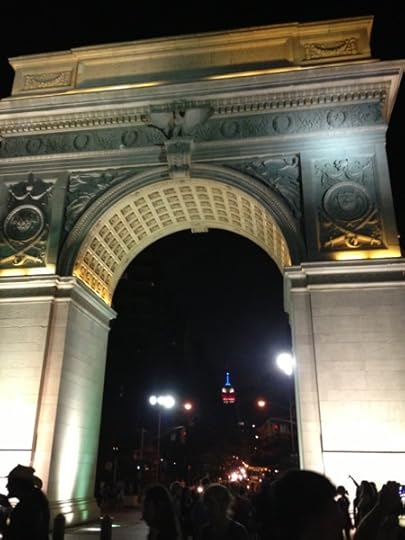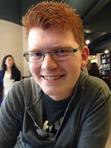Tommy Collison's Blog, page 6
September 23, 2013
The Library
En route to Café Minerva (which I've talked about before here), I pass this gorgeous building on the corner of West 10th and 6th Avenue, which reminds me an awful lot of a lighthouse:
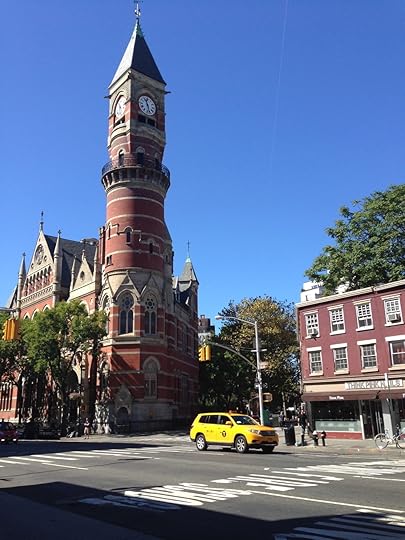
It turns out that the building is the Jefferson Market Library. The lighthouse-like structure on top used be the fire lookout tower. It used to be the Jefferson Market Courthouse, and, in a fit of judicial expediency, there was also a prison housed adjacent to the building.
It looks like I picked a good time to discover the building -- Open House New York, a time you can visit some NYC cultural/architectural landmarks otherwise closed, takes place two weeks from now.
September 21, 2013
Memories as Fiction
Can you write a fictional memoir?
That’s the question I’m asking as I read David Wojnarowicz’s 'The Waterfront Journals'. It’s the required reading for the third week of my literature seminar, The Writer in New York.
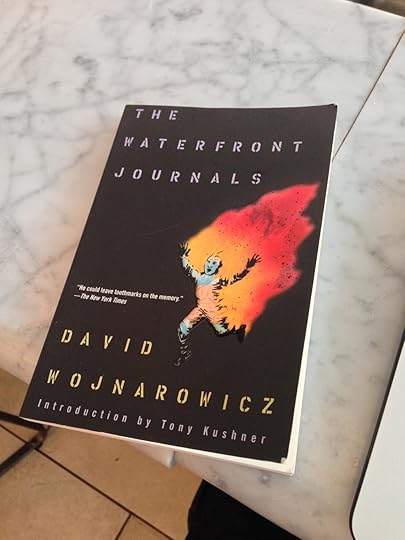
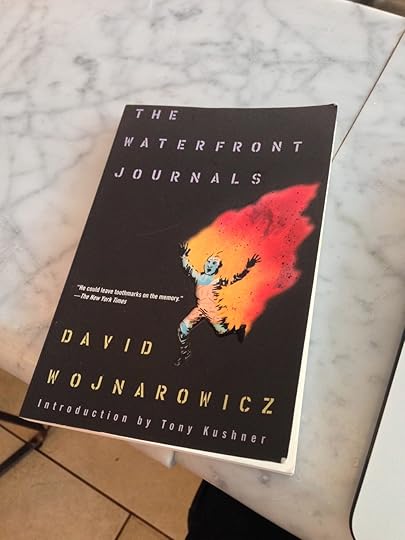
The Waterfront Journals
Over the course of 46 monologues, Wojnarowicz chronicles the experiences of various hustlers, whores, and hobos he came across in his travels. The prose reflects the subject matter to an extent — endlessly scuzzy encounters are told in the same frenzied voice that presents itself as a stream of conscience. The sameness of the prose suggests Wojnarowicz adjusting his own experiences, shaping them into the fictional set of vignettes before us.
The fact that the book is a work of fiction (and is clearly marked as such) registered with me as I bought the book but I didn’t think about it as I read. I believe it of questionable importance. My professor raised the question of fictional memoirs in our latest lecture, asking if our relationship with the book changed because it was a work of fiction. It’s the question that prompted this update.
Perhaps a better question to ask is whether memoirs are required to be factual. Since nobody doubts the authenticity of Wojnarowicz’s descriptions or prose, maybe specific details aren’t the focus of the book. Nobody doubts that people like the speakers existed in New York, nor that Wojnarowicz encountered them.The Advocate, an LGBT-interest magazine, captured this sentiment best when it wrote that “As you read these works … the characters’ circumstances become crystal clear; you can almost see the way street life has marked their faces.”
Irrespective of whether the monologues are true or not, the book as a whole is still powerful and stirring. It’s a period piece that deftly captures the mood of the era.
'The Waterfront Journals' is available in paperback form from Amazon.
You can follow me on Twitter.
September 20, 2013
Reasons For Reading
(Originally published: November 2012)
"What Should Children Read?" Opinionator, New York Times:
Malcolm Gladwell, author of “The Tipping Point” and a New Yorker staff writer, told me how he prepared, years ago, to write his first “Talk of the Town” story. “Talk” articles have a distinct style, and he wanted to make sure he got the voice straight in his head before he began writing. His approach was simple. He sat down and read 100 “Talk” pieces, one after the other.
The story nicely illustrates how careful reading can advance great writing. As a schoolteacher, I offer Mr. Gladwell’s story to students struggling with expository writing as evidence that they need not labor alone. There are models out there — if only they’ll read them!
That quote from Sara Mosle, accurately sums up how reading is a multi-faceted pastime with more than one goal or benefit. We read to pass the time, and because we enjoy reading for reading's sake, but that's not all. Some of us, those with a love of words in and of themselves who've got some sort of "word of the day" app on their phone, and, when they discover that "fugacious" exists as a word, will try to use that word as many times in the next few days in order to secure its place in their literary lexicon, will read for the sheer utility of it. They're the ones who look at "fugacious" and try to come up with essay examples where the word could be used.
(fugacious -- n: fleeting; tending to disappear)
It should be perfectly clear that reading will, in turn, advance a person's writing. This is especially true for the English Leaving Cert. paper, where a full quarter of your grade (100 marks out of 400) is given to the composition section. Here, students are given seven prompts and are asked to write 4/5 pages on one. A big thing they're looking for here, as well as personal expression, is if students can recognize and acknowledge the differing styles of writing -- a plot- and adjective-driven short story being different to the expositional persuasive speech.
How else could you possibly do well in this section without both reading from a wide set of genres and practising the different styles of writing expected of you? In recent years, I've anecdotally seen a rise in the amount of students learning off essays, which seems to me like the biggest waste of time in the history of education, and I honestly can't fathom why teachers would actively encourage the practice.
The much better strategy, at least from this student's perspective, is to practice writing on topics, rather than essay titles, especially when it comes to the likes of reports, speeches, or (in)formal magazine and newspaper articles. In 2012, one of the prompts was "a feature article for a newspaper or magazine on the role played by memory and the past in our lives". A savvy student, having practised that essay, would now probably be able to complete 2007's "Write a speech in which you attempt to persuade an audience that the past should not be glorified", and, perhaps at a slight push, 2009's "Write a personal essay on the topic of daydreams", or indeed any essay involving the Celtic Tiger.
Reading, as well as being an enjoyable pastime, can obviously feed into a person's essay writing ability. I'm currently reading Victor Hugo's Les Misérables, for enjoyment, its usefulness for essays, and any book widely considered to be "one of the most important novels ever written" absolutely deserves my attention, not least since I want to get into a career that involves writing in some way, shape, or form.
I don't know how much weight my recommendations carry, seeing as I'm a student and not a teacher, but if I were asked to recommend books for the Leaving Cert. syllabus, with the objective of both instilling an enjoyment of reading and being beneficial in doing the Leaving Cert. course. There are no people who "don't read", there are merely people who haven't found the right book yet.
Northern Lights, Phillip Pullman. Though generally receiving less favorable reviews than the oft-compared-to Harry Potter series, I found both the plot and language to be far superior. Books should challenge you and make you think; the His Dark Materials trilogy does both.Fall of the Giants, Ken Follett. I recommend this to Leaving Cert. History students for its historical content rather than its prose, which is stilted and awkward in places.The Girl with the Dragon Tattoo, Stieg Larsson. At times, I feel like I'm the only one who enjoyed this series, but in terms of general fiction with a thriller/detective spin, I haven't read better than this in a long time.Finally, the best investment a student wanting to read more (and improve their Leaving Cert. English abilities) would be to get a Kindle. I've made the cost of the device back several times over due to the fact that Kindle books are often cheaper than their dead-tree comrades. Either as an introductory offer or due to a bug, I bought Winter of the Worlds for 40c (yes, €0.40) when it retailed for €18 in bookstores. Assuming you're going to be reading books anyway (which I am, and you, Leaving Cert. English student, should be), a dedicated, portable reading device is an incredible investment.
Now, if you'll excuse me, I've a Macbeth essay to get to.
Review: Anthony Rapp's Without You
I posted this on tommycollison.net in September 2012. I'm reposting it below in order to have all my writing on one website.
Anthony Rapp's Without You is a raw, bittersweet, and utterly moving look at love and loss. The show's compelling honesty is matched only by its enormous heart.
In June 2008, I discovered the musical RENT during a summer camp, and promptly fell in love with the quirky 90s rock opera, so when I heard that Anthony Rapp's one-man show, Without You, was coming to the Edinburgh Fringe Festival, I knew I had to make it over there.
Without You is the title of Rapp's memoir of 'love, loss, and the musical RENT', where Rapp explores his thoughts and reactions the show's meteoric rise to stardom, which happened concurrently with his mother's battle with cancer and death in 1997 at just 55. In addition to that, the night before the show opened off-Broadway (a short few months before the Broadway opening night), the show's composer, Jonathan Larson, died suddenly of an aortic aneurysm at just 35.
Rapp is a gifted voice actor, conveying entire conversations while easily shifting between his own mellow Midwestern murmurs, to the more plaintive tones of his ailing mother, to the intensity of Jonathan Larson's own voice. Touchingly, and with aching sadness, Rapp's imitation of his mother's meek tones get weaker and weaker as he charts the decline in her overall health.
As well as R.E.M.'s "Losing My Religion" (what Rapp sang for his RENT audition in 1994), music from RENT appears at several points in the show, most touchingly when Rapp sings Without You at the show's climax. As the song ends and Rapp signs "I love you" towards the sky, mouthing a silent "thank you" to his mother, the emotion is almost too much to bear.
Throughout the show, Rapp's tender vulnerability shines nakedly through, never veering into the territory of martyrdom and never feeling as if the actor is somehow abusing or taking advantage of his grief.

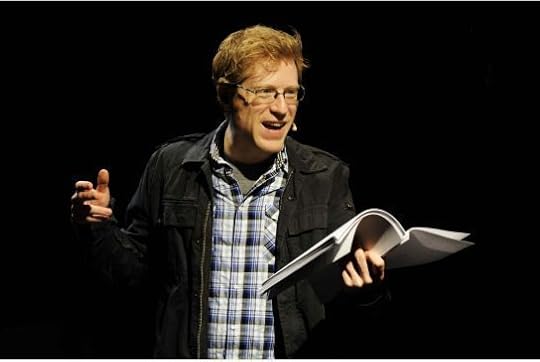
Anthony Rapp in Without You . Photo credit: Nobby Clark for the Toronto Star.
In "What You Own", a song from the show, Rapp's character sings how he found "connection in an isolating age", and in a lot of ways, this is what Without You seems to me. I'd seen shows before, but there was something otherworldly and almost, yes, spiritual about this show. Perhaps it is the intimacy of the show, the small audience and the unshakable feeling that Rapp is speaking directly to you personally as he speaks of his experiences and innermost feelings. The barrier between performer and audience, as far as this show is concerned, is nonexistent. There is an unparalleled emotional intensity that runs throughout the show.
Rapp sings the upbeat "Seasons of Love" (also from RENT) as an encore, but I found that I couldn't absorb the song's uplifting message; I was still caught up in the tidal wave of emotions the show had brought to the front of my consciousness. The raw power of that emotion was unlike anything I'd experienced before, almost like a physical blow. I felt numb as I made my way out of the theater, determined to find the theater's stage-door to try and put some of what I was feeling into intelligible sentences. I was lucky enough that I met Rapp that night, and stuttered my way through a 'thank you', trying to express some small fraction of the intensity of my emotional reaction. For his part, Rapp nodded quietly, his head down, as I spoke, seeming to be genuinely touched by what I said.
In the age of the internet, I think it's easy to become disconnected, to separate yourself from emotion, to create a persona and then disengage from it. Whether the world or my generation or whatever are becoming more emotionally isolated is not for me to say, but I can say that I had never, ever, felt emotion so keenly as I did during that show. It was an unfamiliar, sometimes scary, but ultimately cathartic experience. Without You is impossible not to emotionally engage with; a wonderful, timeless story of love, and loss.
September 2012 Update: Together with Anthony Rapp, PBS Classics released a recording of the show. It's currently available on iTunes and I wholeheartedly recommend you check it out. Much of the emotional power of the show does come through the CD.
The City of Neon and Chrome
I've been living in NYC for just over 4 weeks, and now seems like a good time to take stock of everything and reflect on how I've been getting on.
Classes provide the structure of each week, and whatever my froyo updates on Twitter may suggest, they're still the most important part of being here. I'm taking Spanish, a Creative Writing workshop, a history/discussion class of New York writers, and a cultural study of modern China (1840-1940). It goes without saying that the courses are quite challenging and come with their own set of positive and negative aspects. Some require papers to be handed in on a weekly basis, others require a novel to be read before next week's class.
That's probably the biggest change from high school to college -- my NYU workload is undeniably as heavy as during the Leaving Cert., but how the work is spaced out and organized is vastly different, and it reflects that college is made up of adults. (High school, for what it's worth, is also made up of adults, but they seem less willing to treat you as such.) In college, most of the homework isn't due the next day, it's due next week, so you have a choice when you want to get it done. Most of the homework takes the form of readings -- work that you can't hand up.
I'm still getting into a comfortable college rhythm in terms of when I get college work done and when I get real-life 'work' (laundry, eating, seeing friends, etc.) done. It's a balancing act, of course, and I think that the most organized people are the ones who are going to drift to the top. I remember asking Patrick when I was doing my Junior Cert. in 2011 what study advice he could give me. He answered that it was a very useful skill to be able to sit and do something for long periods of time without getting distracted -- working through a task until completion. It's that advice that's sticking with me most in college: sitting down somewhere and doing the reading from start to finish, getting the task complete and beating your to-do list through a war of attrition.
Before I started, an NYU student told me that students in NYC tend to become adults faster than students at other colleges, since college life and NYC are so inexorably intertwined. Most NYU classes (the College of Arts and Sciences, Bobst Library, the student center) are clustered around Washington Square Park, a public park in Greenwich Village that's always full of New Yorkers and tourists. It's rare that I don't walk through it on my way to class, and rarer still that there isn't a busker of some description playing piano or guitar. I spent most of my teenage years living 5 minutes from the University of Limerick, which has a traditional campus, and the two college experiences are fascinating in how different they are. Living in such close proximity to New Yorkers makes college less of a cloistered experience which helps keep students grounded and makes 4 years of college less of an unreproducible bubble that jars with reality.
Speaking of other New Yorkers, I'm happy to report that I'm making friends both inside and outside NYU. I think it's beneficial to have friends from both categories -- the former are in your age group and going through the same experiences as you, while the latter have more experience, both of life and of NYC. They're useful in different ways and I think I'm getting a more rounded experience by having access to both.
One advantage of going to NYU, as if the experience could be boiled down to just one, is that being in NYC is conducive to seeing people from back home. Last Saturday, I met Pat Phelan and James Whelton. During the college admissions process, I almost ended up in Vermont and North Carolina -- NYC has a much larger Irish contingent, both in terms of residents and visitors, and that was absolutely a factor of my decision to come here.
I hate blog entries that begin by apologizing for the lack of updates, but it's worth noting that I'll be writing a lot more here on Collision Course now that I'm settled. Stay tuned. On a completely separate note, I redesigned 42409.org's homepage the other day. I'd love to hear what you think.
(Title reference -- "Out Tonight", from RENT.)
As always, you can e-mail me on tommy@collison.ie, or you can follow me on Twitter.
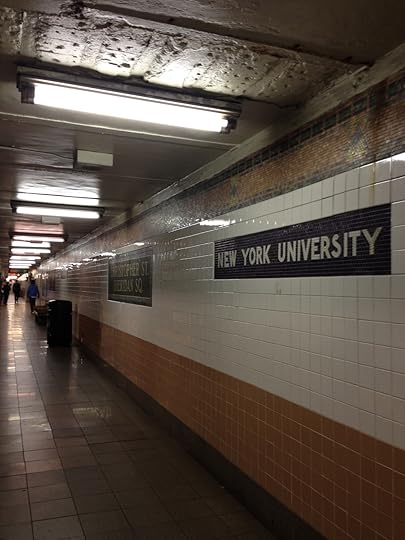
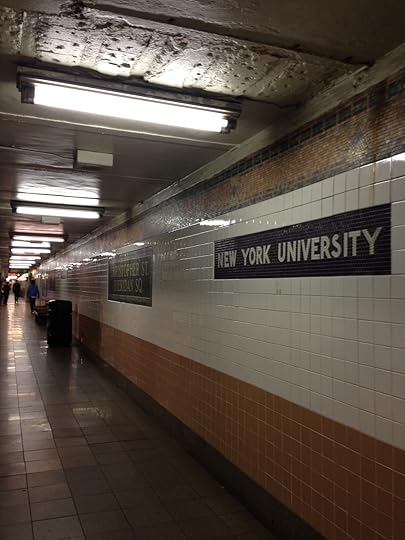
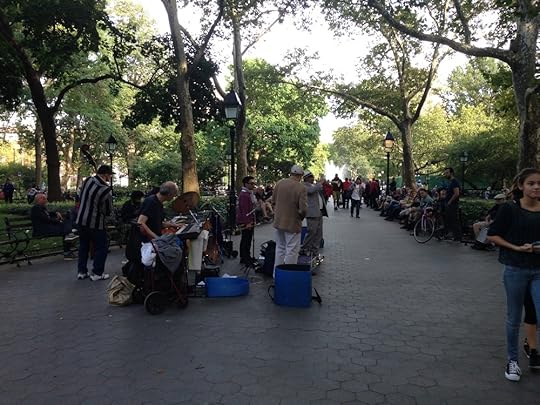
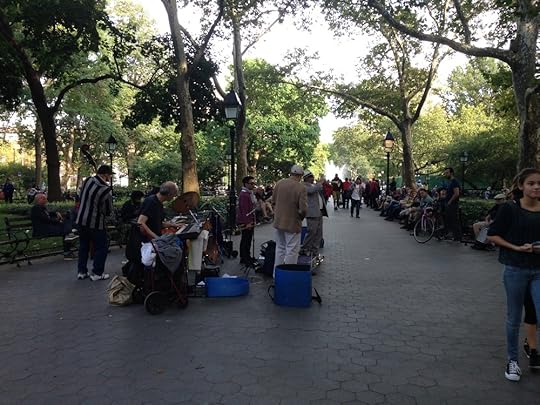
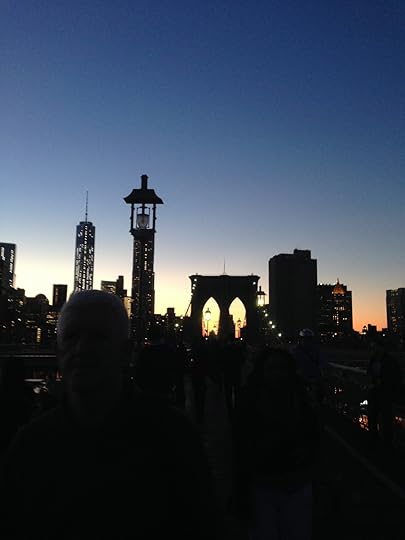
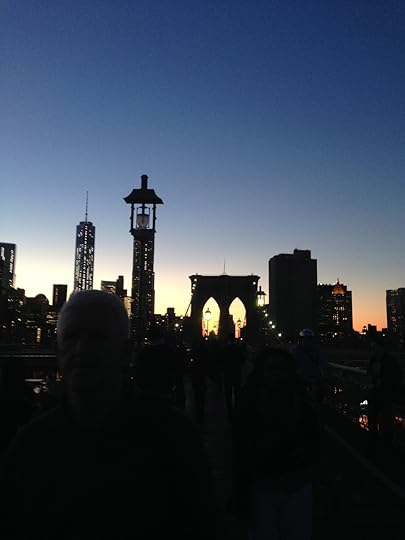
September 12, 2013
Inborn Intelligence
Among other things, I spent this summer introducing several people to John Green's excellent novel, The Fault in Our Stars. (Currently available for Kindle for just $3.99.) After Les Miserables, which is fantastic but a hard slog, it's the best book I've read in the last 12 months.
I had reason tonight to return to one of my favorite quotes of John Green, shared below. Given how much I've written about gifted kids and CTYI, I appreciate somebody condensing most of my sentiments on the subject into just one or two lines. He's asked to respond to claims that he views smart people as being better than others. (Emphasis mine.)
John Green: "I don’t think smart people are better than other people. More importantly, I view intelligence (at least the kind of intelligence that most of the characters in my novel display) as something learned not inborn. I don’t think Hazel or Gus necessarily have particularly high IQs (Gus in particular is constantly misusing words). I just think they’re intellectually curious."
September 7, 2013
Close to the Knives
First bit of reading for my Writer in New York seminar. I still have about 50 pages to go, but it's definitely one of the better books I've read this year; David Wojnarowicz (Voe-na-roe-vitch) is an incredibly talented essayist (Paul Graham is being given a run for his money) and the book's probably the best book I've read about the AIDS crisis in America during the 80s. There are some phenomenal descriptions and Wojnarowicz has a fantastically mordant sense of humor. Chances are, a couple readers of this blog are going to be given this book and strongly encouraged to read it -- I get like that with certain books. As John Green might put it, I'm prone to a certain evangelical zeal when it comes to good literature.
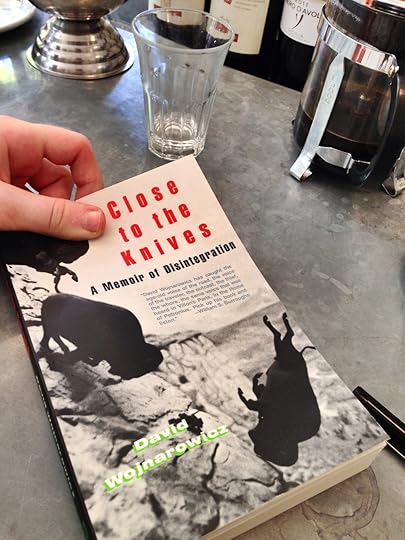
September 2, 2013
Comfort in the Familiarity
We stay because Anatevka is our home... And how do we keep our balance? That, I can tell you in one word: Tradition!
- Tevye, Fiddler on the Roof.
When they live with their parents, children are, at least somewhat, bound by the traditions and habits of their parents. Now, to say they're 'bound' implies unwillingness on their part, which isn't always the case. My parents, for example, were huge Scrabble players, but since I enjoyed the game too, our nightly games were a happy tradition that I enjoyed participating in. The tradition of visiting relatives at Christmas was a fun tradition because I enjoyed spending time with my extended family.
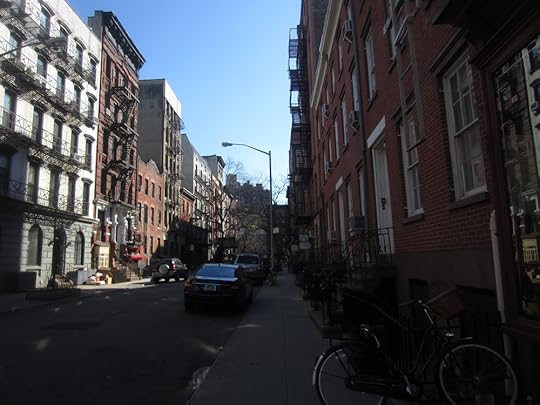
The West Village
When a child moves away from home, the structure of those traditions falls away. It's nobody's fault, of course; it's just that my parents aren't around to play Scrabble each night and visiting my extended family now requires a plane ticket. Since I've moved to New York, I need to find new traditions to take the place of the old ones.
Some of these are naturally taken care of -- the reason they call room-mates 'family' is that they fulfill many of the same roles: I eat with them and interact with them on a daily basis. It's why NYU always (rightly) touts freshmen dorms as 'home away from home'.
Even so, there are some traditions that can't be filled. These are new traditions that I get to create. Followers of my old blog and my Twitter are probably aware of my love for the cafe La Cucina. Obviously, the food there is good, but I think the appeal of going there a couple times a month wasn't just the food or the ambience, it was the community and the tradition -- seeing the same people, sharing a laugh, and finding comfort in the familiarity.
I'm in the middle of trying to find a cafe like that here in New York. Obviously, there are hundreds (if not thousands) of good cafes and restaurants in Manhattan, but I'm looking for somewhere with that same brand of closeness that held La Cucina together and gave it its charm.
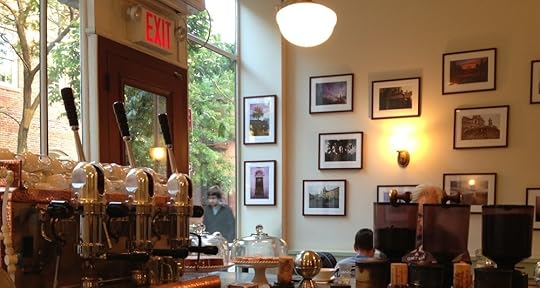
Cafe Minerva
I think I've found it in Cafe Minerva, at 302 W 4th St. It's a 13-minute walk from my dorm through the endlessly picturesque West Village. I've been there twice since I moved to New York, and I can see it becoming a regular haunt of mine. Obviously, I can't eat there every day, but like La Cucina, the occasional treat is what makes it special.
Adulthood is all about greater degrees of responsibility and autonomy, but one of the more nuanced parts of becoming an adult, I think, is the realization that your spare time is your own. It's yours to do with as you please -- spending it doing what you want with who you want.
That's exciting.
(Brief anecdote on the subject: I was hanging out in my dorm one of the nights last week when a friend texts me at 10.50pm asking me if I'd like to do something that night. We ended up grabbing food at a salad bar in Union Square and chatting until 2am.)
September 1, 2013
Two Men
I don't fancy myself as much of a photographer, but I'm proud of how this shot turned out in Washington Square Park.
(All my photos won't be of this arch, promise.)
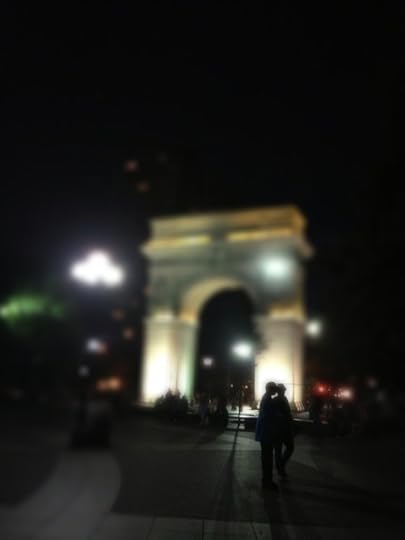
August 31, 2013
City Living
All well here in NYC, but my laptop is kaput and has to go to the Californian doctors for a spell, so long updates might be delayed a bit. Will try to upload a photo each day from my phone. Tonight's is a blurry Empire State Building from Washington Square Park.
